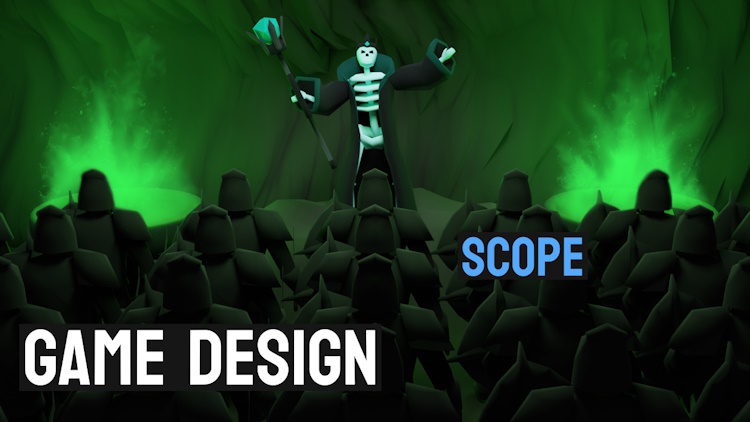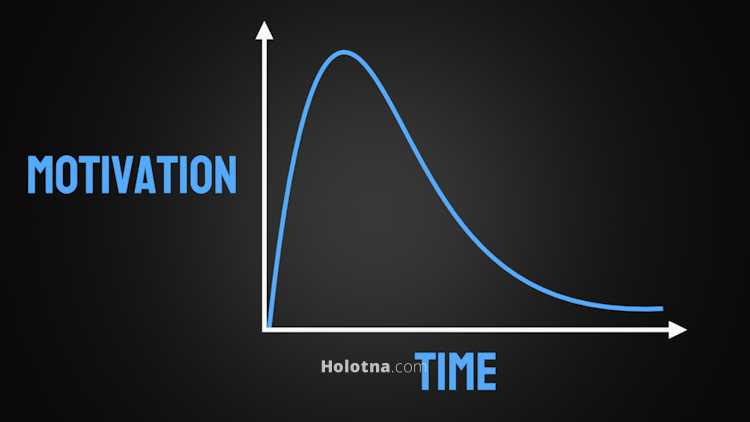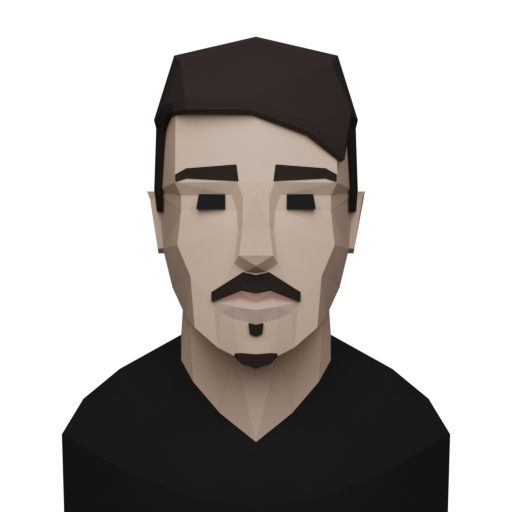Game Design for Beginners - Game Design Basics 2
One of the most important parts of game design is defining the scope of the game. Scope means the size and complexity of the game. In this article you will learn the importance of a minimum viable product, the motivation curve during the development phase and the most common roles of an indie game development studio.

How Big Should Your First Game Be?
I highly recommend that you aim to make your first game as small as possible. I would even say that your first few games should all be small in size.
It’s hard to predict how long the development process is going to be, especially as a beginner. Even experienced developers tend to underestimate the time it takes to finish a game.
 Making games takes time
Making games takes timeSo timewise how long should making a small game take as a beginner? In my opinion, you shouldn’t spend more than one month per project.
Once you have your own collection of small, publicly available games, feel free to think bigger and work on the game ideas that you are really passionate about.
What is the Minimum Viable Product?
MVP Explained
Let’s now talk about another important topic of game design called minimum viable product which is basically the bare minimum version of your game.
This could mean that you build one level that can be played with one character instead of focusing on building all the levels or adding every single character you’re planning on including in the game.
The MVP version of your game is used to test the core game mechanics to see if they’re engaging so you should strive to make it early on in the development process as then you’ll know if the game is even fun to play and therefore has the opportunity to build an audience.
Getting Feedback on Your Game is Important
Getting feedback on your game is one of the most important things during and after the development process. Developers don’t usually see some of the flaws in their games before they hear about them from other people.
These flaws can be things like gameplay that is too difficult or easy, unresponsive controls, lack of or bad tutorial, and a game world that doesn’t guide the player forward at all.
That’s why you should let other people such as your friends and family play your game. You may also want to send the test build to people online to gather unbiased feedback.
It’s better to get negative feedback before your game is available to the public, otherwise, your store page will get filled with negative feedback as in reviews and that’s no good.
 Too many negative reviews kill the success of your game
Too many negative reviews kill the success of your gameMotivation in Game Development
The Motivation Curve During the Project
Developers usually talk about how they are no longer motivated to work on their game so they start working on a new idea. The majority of developers jump from project to project every time they run out of motivation.
To break this behavior down, here’s a graph of how motivation works during any project.

In the beginning, you’re very excited about a new idea. You may start working on it intensely in the morning and then realize the whole day has passed and it’s already nighttime.
When starting a new project, everything is so clean and organized, there are so few variables at play.
However, once things begin to pile up and you start to realize the amount of work your game requires, the motivation starts to dip. Things may also become repetitive and at times you may have to work on the more boring stuff for a good while.
When motivation goes down enough, you may start to dislike the project and think to yourself that you’ll never finish it. In these situations, you just have to push through by adding one small feature at a time.
How to Stay Motivated in Game Dev?
Motivation is good but it’s only temporary. A good thing about small games is, you might be able to finish a game before completely running out of motivation.
However, you can gain motivation, for example, by getting positive feedback from game testers or polishing a game mechanic that makes you realize that the game is actually super fun.
But at the end of the day, you don’t make games with motivation, you make them by being disciplined.
Perfection is the Enemy of Progress
One thing I also want to mention that only applies to people who have the urge to make everything perfect. Perfectionism is both a curse and a curse. Yes, you read it right.
The thing is, your game doesn’t have to be perfect. A finished game is way better than a perfect game that never gets released.
 Some things can be done later
Some things can be done laterGetting familiar with the whole development process is crucial. When you know every step of the way from planning the game all the way to the launch, you can really be proud of yourself. Not a lot of people can put on their CV that they have made a complete video game.
Roles of an Indie Game Development Team
Now let’s talk about which skills are needed in developing a game. If you have a team, you should think about who will take on which role. However, if you’re a solo developer, you may need to wear multiple hats, so to speak.
The most common roles in indie game development are:
- designer
- artist
- level designer
- audio specialist
- programmer
- game tester
 The skills can be divided into two categories
The skills can be divided into two categoriesA designer is the visionary of the project. Some of the tasks of a designer are planning the gameplay, user interface, environment, characters, and storyline.
The primary duties of an artist can be 3D art as in 3D models like characters, buildings, and props, or 2D art like sprites, textures, and concept art. The artist also takes care of animations.
A level designer is a person who creates levels for the game with the assets made by the artist. The level designer builds a level in a way that it provides the right challenges to the player. The level designer also sets up the lighting for the game world and optimizes its graphical performance.
The main duties of an audio specialist include music composition and making sound effects for the game.
A programmer glues everything together and brings the game to life. The programmer writes scripts that tell the game objects what to do and when.
A tester’s job is to test the game to make sure the game works as it should. The tester also purposely tries to find bugs in the game. In my opinion, everyone on the team should be a game tester, because people play games differently and the more feedback you can get, the better. As mentioned earlier you should also get feedback from people outside your development team.
Some tasks like music compositing, voice acting, and graphic design can be outsourced by hiring people on freelance sites, for example.
You can also download 3D and 2D game assets from sites that sell them. There’s absolutely no shame in not doing everything by yourself.
So think to yourself which of these roles interests you and which doesn’t. As I said, a lot of them can be outsourced but the programmer’s role is one that either you or one of your teammates have to take on, there’s no way around it.
